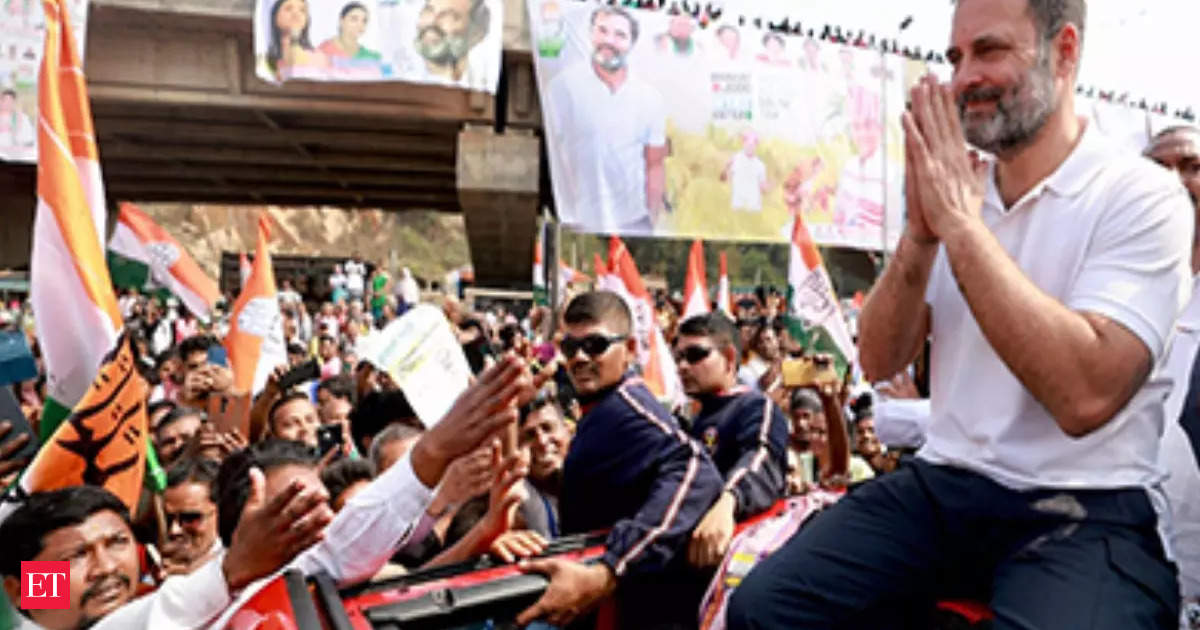Congress leader Rahul Gandhi attacked the central government, claiming that resources were being diverted to benefit a select few industrialists while neglecting the majority of the population, especially the impoverished. Speaking at a public gathering in Sitamadi, Chhattisgarh, as part of his ‘Bharat Jodo Nyay Yatra’, Gandhi urged citizens to recognize the dwindling financial resources and the deception they were facing. He emphasized the importance of a caste census and pointed out the lack of representation from marginalized communities in the country’s top 200 companies. Gandhi critiqued the BJP’s vision of a Hindu Rashtra and highlighted the disparity between the privileged figures at events like the Ram Mandir inauguration and the struggles faced by the common people.
Gandhi accused industrialists like Adani and Ambani of profiting from the sale of Chinese goods at the expense of citizens’ welfare, labeling it as economic injustice. He expressed his disappointment with the media’s focus on certain prominent individuals and claimed that his messages addressing important issues were often sidelined.
Furthermore, Gandhi questioned the presence of backward, Dalit, and OBC persons as the owners of major hospitals or universities. He criticized the public’s preoccupation with chanting slogans and the dangers of excessive screen time, which he considered as a dangerous addiction leading to apathy. Gandhi urged people to question the allocation of funds and demand their fair share of the nation’s resources, stating that such awareness could bring about transformative change.
In addition, Gandhi criticized Prime Minister Narendra Modi by questioning his inclusion in the OBC list in Gujarat in 2000. BJP leaders, including Amit Shah, criticized Gandhi for his claims regarding the Prime Minister’s caste.
Gandhi also expressed concerns about the Agnipath scheme and its potential impact on the unity of the armed forces and the nation as a whole. During his address, he emphasized the urgency of filling government job vacancies to ensure employment opportunities for the public.+











